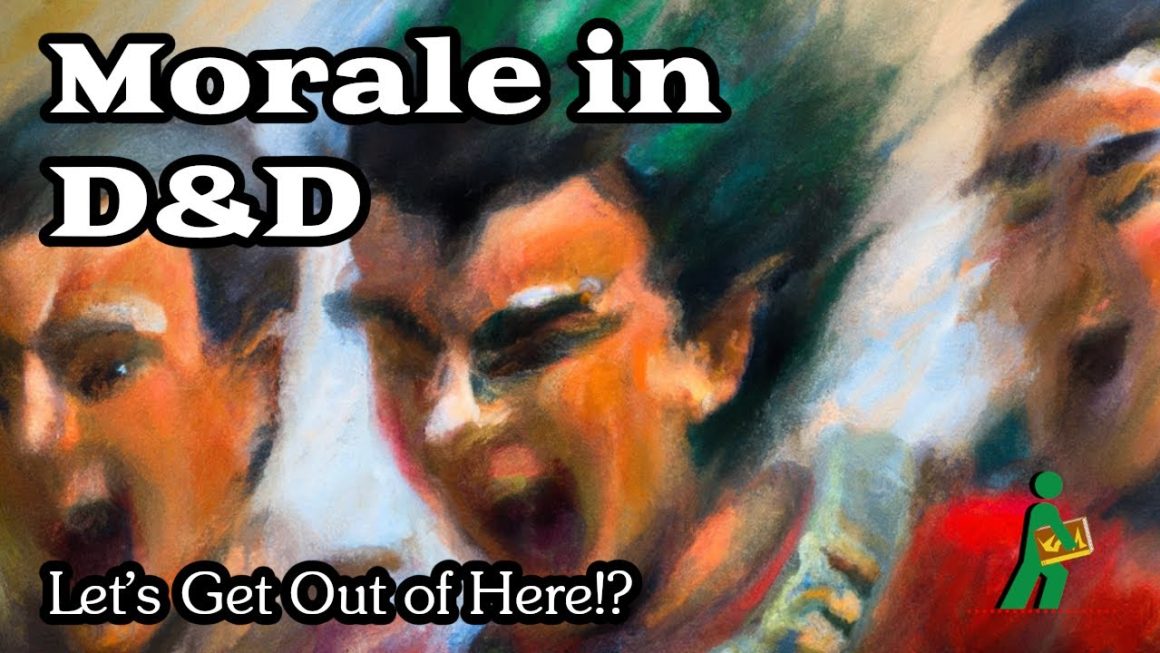
Morale in D&D | Let’s Get Out of Here!? | Wandering DMs S05 E16

Dan & Paul discuss the large variety of different morale rules in classic D&D — and its roots in related wargaming. Which method is best? What would be most believable? What makes the best gameplay? What’s easiest for the DM to manage?
Clausewitz stresses the importance of morale and will for both the soldier and the commander. The soldier’s first requirement is moral and physical courage, both the acceptance of responsibility and the suppression of fear. In order to survive the horror of combat, he must have an invincible martial spirit, which can be attained only through military victory and hardship. The soldier has but one purpose: “The end for which a soldier is recruited, clothed, armed and trained, the whole object of his sleeping, eating, drinking, and marching is simply that he should fight at the right place and the right time.
Military morale is in a large sense inseparable from civilian morale because each reacts upon the other and both are in large measure based on fidelity to a cause. But there is a certain kind of morale that is distinctly military. It begins with the soldier’s attitude toward duty. It develops with the soldier’s command over himself. It is a spirit that becomes dominant in the individual and also in the group. Whether the soldier has physical comforts or suffers physical hardships may be a factor but is seldom the determining factor in making or unmaking his morale. A cause known and believed in; knowledge that substantial justice governs discipline; the individual’s confidence and pride in himself, his comrades, his leaders; the unit’s pride in its own will; these basic things, supplemented by intelligent welfare and recreation measures and brought to life by a spirit of mutual respect and co-operation, combine to weld a seasoned fighting force capable of defending the nation.
This description uses material from the Wikipedia article “Morale“, which is released under the Creative Commons Attribution-Share-Alike License 3.0.

